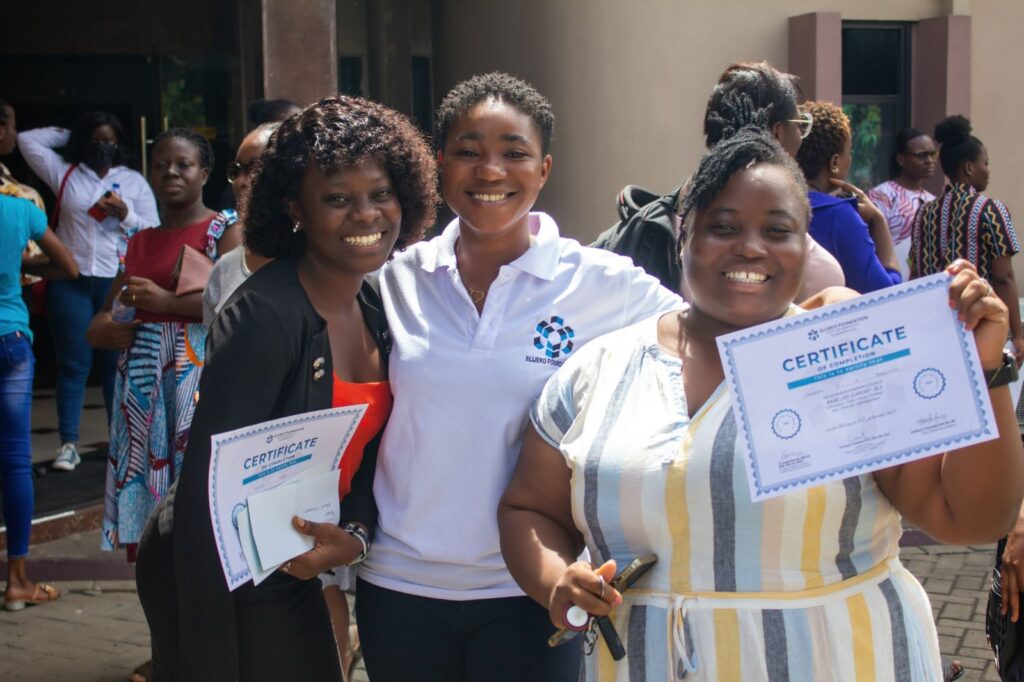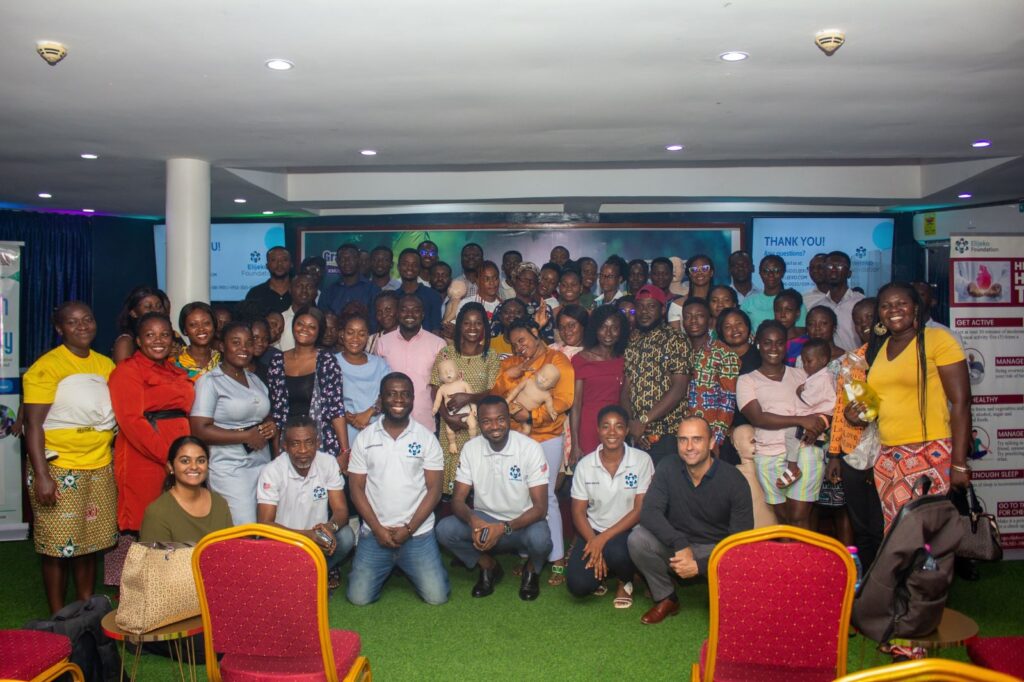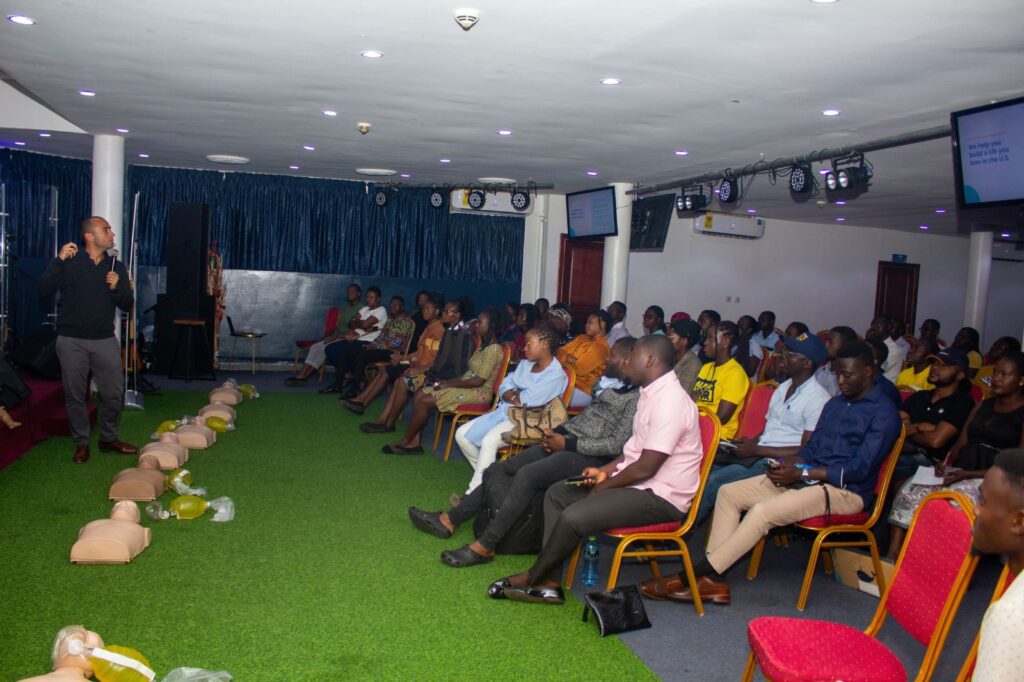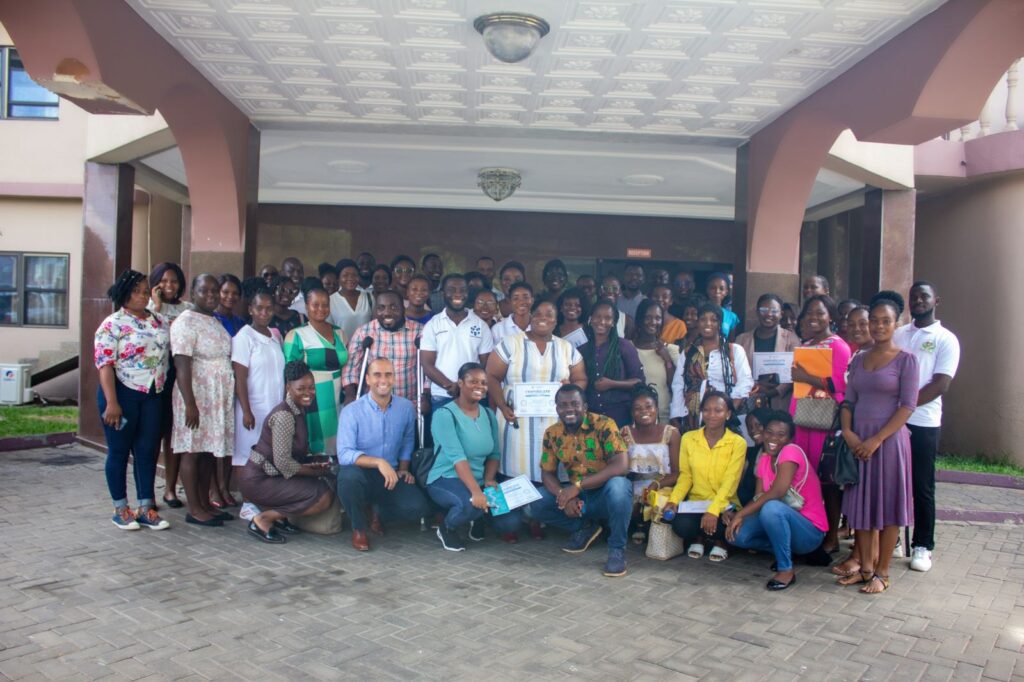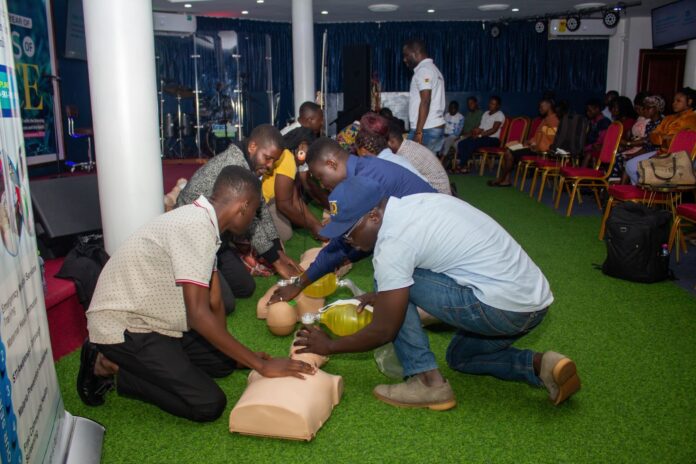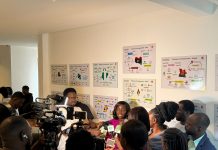As part of activities marking the annual Nurses Month celebration, the ELIJEKO FOUNDATION, a Ghana-based Non-Governmental Organization dedicated to providing free preventative health education and pre-hospital emergency, recently hosted a two-day Basic Life Support (BLS)/Cardiopulmonary Resuscitation (CPR) training program for healthcare professionals in Greater Accra and the Ashanti Region.
The event was held in partnership with Conexus Medstaff in the USA and Ghana’s National Blood Service.
The event attracted a large crowd of eager and enthusiastic nurses and midwives from various health facilities in the Greater Accra Region and Ashanti Region respectively.
One of the participants noted, “This training is invaluable to us as healthcare providers, and we are confident it will benefit our patients.”
May is an annual month-long celebration and appreciation of nurses’ invaluable contributions across the world.
Elijeko Foundation’s CPR training will enhance the participant’s skills and knowledge of providing efficient and effective emergency care.
Gracing the occasion was the CEO and Founder of Elijeko Foundation, Mr. Andrews Kwabena Nyantakyi.
In addition, Mr. Vasco Lopes Da Silva, the Director of Conexus, the Country Director of Elijeko Foundation Celestina Kalor Abapiri, and Steffy John as the Guest Speakers.
The training program also formed part of Elijeko Foundation’s prime objective of ensuring a community and evidence-based approach to health education by working with healthcare providers to create a platform that promotes dialogue for preventative health education to save lives.
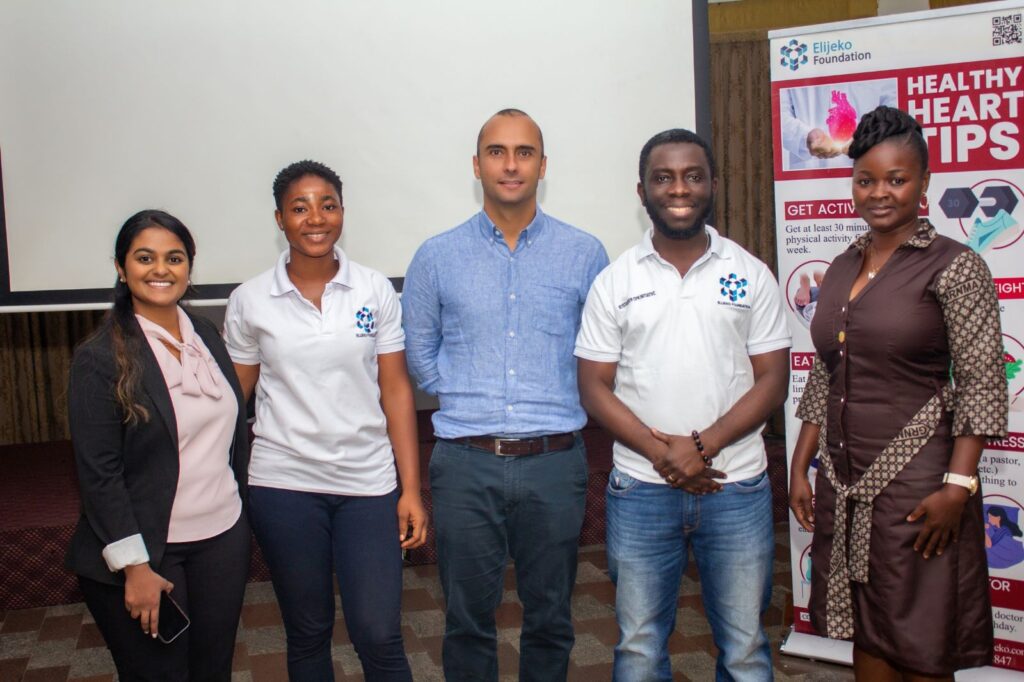
The participants were thoroughly trained by going through a detailed step-by-step approach outlined in BLS/CPR to save life or prevent untimely death.
The Elijeko Foundation, founded in 2016 by Mr. Andrews Nyantakyi, a U.S. Navy Veteran, and his family, addresses Ghana’s healthcare needs by offering preventative health education, medical outreach, and training programs.
It has served over 140,000 beneficiaries since its inception. It continues to expand its programs to rural and remote communities without access to quality healthcare services.
Mr. Nyantakyi is also an Emergency Room Nurse at Inova Hospital System in the United States of America. He is a current Family Nurse Practitioner student at the George Washington University School of Nursing.
Mr. Nyantakyi shockingly revealed at the event that cardiovascular diseases are the leading cause of death globally. There are an estimated 17.9 million deaths from CVDs in 2019, and 85 percent of these deaths were due to heart attack and stroke.
Against these statistics, he urged Ghanaians to develop the habit of regular check-ups at the various health centers to ensure a safe and sound body.
“We always hear reports that this person died of heart failure or an attack without any cause. In this regard, I would plead with all of us to check our systems very well, do regular check-ups, and know ourselves to prevent such incidents. Cardiac arrest is very dangerous and can happen to anyone whether adults or children so we need to be very aware such that when it happens, we can offer to help such victims.”
He added: “There are causes that lead to cardiac arrest but what is required at this critical stage is more public engagement and education. If we can educate Ghanaians to recognize cardiac arrest early and activate the emergency response system, we can save a lot of people.
This is why Elijeko Foundation’s Bystander CPR Initiative is very important because if our citizens can start early CPR with an emphasis on chest compressions, we can keep blood flowing when the heart stops pumping and it is going to increase the chance of survival and buy the person more time”.
On this note, I would encourage nurses and doctors to educate more in the various communities. I am sure it would come a long way to helping.”
Touching on the importance of Ghana’s National Blood Service in the line of duty as nurses, Kate Sonne of Clinical Services Department at the National Blood Service briefed the participants about the service’s functions.
“We have doctors, nurses, lab technicians, administrators, and finance workers at the service. Our core mandate is to make blood available and on time. So at the operational level, we have a recruitment team that educates people on our services and recruits people into the system.
She also explained why the blood bank charges fees for blood stocks.
“As we are underfunded, all these administrative duties and resources at the Blood Service cost money; therefore, we need to charge some fee to keep the service running.
…We also advocate for voluntary blood donors and it’s the safest, so we encourage people to regularly donate blood. It’s one of the most critical aspects that keeps the National Blood Service working.
Blood donation is critical, and as nurses, we should also encourage people to donate blood. This is because we might need it to save your life or someone’s life in the future,” Madam Sohu further indicated.
Some participants, on their part, expressed their satisfaction and encouraged the Elijeko Foundation to continue such a valuable initiative.
“The training has been very informative and it’s really helpful because I believe it would help us and the country as a whole.
The BLS training has also broadened my knowledge as a nurse and in case I encounter an issue of cardiac arrest with my wide understanding of CPR, I think I will be able to help that person and save his or her life. I want Elijeko Foundation and their partners to continue supporting nurses with such programs,” one participant said.
Another beneficiary of the training had this to say:
“Let’s all support Elijeko Foundation to do more for Ghanaian nurses with such training because in our field anything can happen and it’s imperative to know all these BLS/CPR. Training is indeed an important step in the right direction.”
